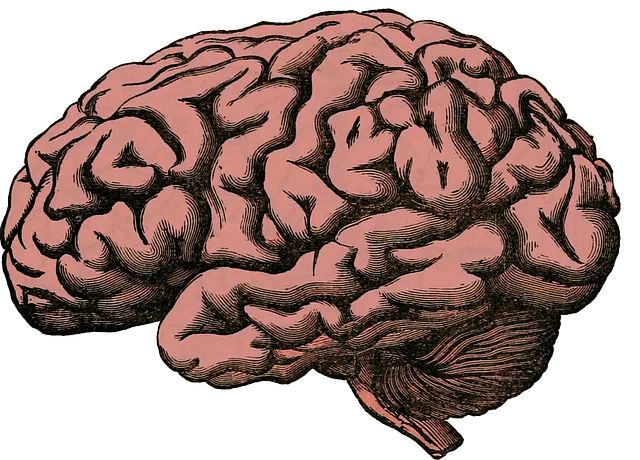The Kaiser Permanente mental health center Superior prioritizes crisis intervention using evidence-based practices and patient-centered care to address acute mental health issues. They create safe spaces through trust-building, community outreach, and staff well-being initiatives. Active listening is a key skill for enhancing patient engagement and understanding their perspectives during crises. Post-crisis interventions focus on long-term recovery, conflict resolution, and stress management techniques tailored to diverse backgrounds.
“At Kaiser Permanente Mental Health Center, crisis intervention plays a pivotal role in patient care. This article explores effective strategies and guidance tailored to the unique environment of our facility. We delve into creating safe spaces, utilizing active listening techniques to enhance patient engagement, and implementing post-crisis follow-up plans for long-term recovery. By focusing on these essential aspects, Kaiser Permanente strives to provide superior care and support for those facing mental health crises.”
- Understanding Crisis Intervention at Kaiser Permanente Mental Health Center
- Building a Safe and Supportive Environment for Superior Care
- Active Listening Techniques to Enhance Patient Engagement
- Post-Crisis Follow-Up Strategies for Long-Term Recovery
Understanding Crisis Intervention at Kaiser Permanente Mental Health Center

At Kaiser Permanente Mental Health Center, crisis intervention is a cornerstone of our comprehensive approach to patient care. Our superior strategies are designed to swiftly and effectively address mental health crises, ensuring that individuals in distress receive immediate support while fostering long-term resilience. By integrating evidence-based practices with a patient-centered focus, we aim to mitigate the impact of acute mental health issues.
The center places significant emphasis on burnout prevention among our dedicated mental health professionals. We recognize that managing intense situations can be taxing, so we’ve implemented robust risk management planning to promote staff well-being. Through encouraging positive thinking and providing resources for stress mitigation, we empower our professionals to offer consistent and compassionate care.
Building a Safe and Supportive Environment for Superior Care

Creating a safe and supportive environment is paramount in crisis intervention, especially within a healthcare setting like the Kaiser Permanente mental health center. This approach forms the foundation for superior care and empowers individuals to open up about their struggles. By fostering an atmosphere of trust and understanding, patients feel more at ease sharing sensitive information crucial for accurate diagnosis and effective treatment planning.
At the Kaiser Permanente mental health center, implementing community outreach programs and empathy-building strategies has proven beneficial. Mental Health Awareness initiatives help reduce stigma and encourage individuals to seek support without fear of judgment. These efforts collectively contribute to a comprehensive crisis intervention strategy, ensuring patients receive the highest quality care tailored to their unique needs.
Active Listening Techniques to Enhance Patient Engagement

In the context of crisis intervention at a Kaiser Permanente mental health center, active listening is a powerful tool to enhance patient engagement and build trust. Superior emotional well-being promotion techniques rely heavily on this skill, as it allows mental health professionals to understand patients’ perspectives fully. By focusing intently on what the patient is saying—and not just preparing a response—professionals demonstrate empathy and respect, fostering an environment where individuals feel heard and understood during crises.
Effective active listening involves acknowledging emotions, paraphrasing thoughts, and asking open-ended questions to clarify. These strategies not only improve patient engagement but also facilitate a comprehensive risk assessment. Mental health professionals can better identify warning signs and potential triggers by actively listening, enabling them to implement tailored interventions promptly. This approach is pivotal in preventing escalations and promoting positive outcomes for individuals facing mental health crises.
Post-Crisis Follow-Up Strategies for Long-Term Recovery

Post-crisis interventions play a pivotal role in fostering long-term recovery for individuals and communities affected by traumatic events. Following the initial response phase, a structured approach to follow-up strategies is essential to support healing and resilience. The Kaiser Permanente mental health center Superior emphasizes this continuous care model, recognizing that recovery is not a linear process but a journey with unique challenges for each individual.
One effective strategy involves implementing conflict resolution techniques to address interpersonal tensions that may arise post-crisis. By teaching individuals skills to navigate disagreements constructively, these centers promote healthier relationships and reduce the risk of further trauma. Additionally, confidence-boosting activities tailored to various age groups and backgrounds can empower people to rebuild their lives with a renewed sense of agency. Integrating stress management techniques as part of this follow-up ensures that participants have practical tools to cope with ongoing challenges, fostering adaptability and emotional well-being in the long term.
Crisis intervention at the Kaiser Permanente Mental Health Center is a multifaceted approach that prioritizes creating safe, supportive environments and fostering patient engagement through active listening. By implementing these strategies, the center ensures superior care for individuals facing crises. Post-crisis follow-up is crucial for long-term recovery, and by integrating these practices, the Kaiser Permanente Mental Health Center leads the way in comprehensive crisis intervention guidance, setting a standard of excellence in mental health support.






